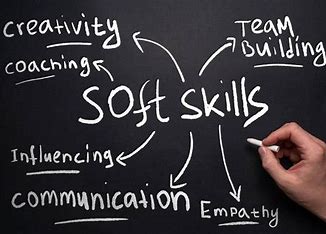
Soft skills are personal attributes, traits, and interpersonal abilities that influence how well you interact with others and handle various work or life situations. Unlike hard skills, which are specific, teachable abilities (like coding or accounting), soft skills are more about how you work rather than what you know.
Key Categories of Soft Skills
- Communication Skills
- Active listening
- Verbal and non-verbal communication
- Public speaking and writing skills
- Interpersonal Skills
- Empathy
- Teamwork
- Conflict resolution
- Networking
- Problem-Solving Skills
- Critical thinking
- Creativity
- Decision-making
- Work Ethic and Attitude
- Reliability
- Time management
- Responsibility
- Professionalism
- Adaptability
- Flexibility
- Resilience
- Open-mindedness
- Ability to learn
- Leadership Skills
- Delegation
- Motivation
- Accountability
- Inspiring others
- Emotional Intelligence
- Self-awareness
- Self-regulation
- Social skills
- Empathy
Why Soft Skills Matter
- Workplace success: They’re critical for teamwork, leadership, and customer service.
- Career growth: Managers often promote based on leadership and communication.
- Life quality: Soft skills help build better personal relationships and deal with challenges.
Soft skills are the personal and social abilities that help you work well with others and handle life’s challenges. They’re not about technical knowledge, but about how you interact, communicate, and solve problems.
Simple Definition:
Soft skills are the qualities that help you get along with people and succeed at work and in life.
Examples of Soft Skills:
- Communication: Talking and listening well, writing clearly, expressing ideas.
- Teamwork: Working well with others, being cooperative and respectful.
- Problem-solving: Finding solutions calmly and logically.
- Adaptability: Adjusting to change and new situations easily.
- Time Management: Using your time wisely and meeting deadlines.
- Emotional Intelligence: Understanding your emotions and those of others.
- Leadership: Guiding and motivating others, even without being the boss.
Why Soft Skills Matter:
They improve your ability to work in teams, handle stress, and be a good leader or employee.
They help build better relationships.
Employers value them as much as technical skills.
Leave a Reply